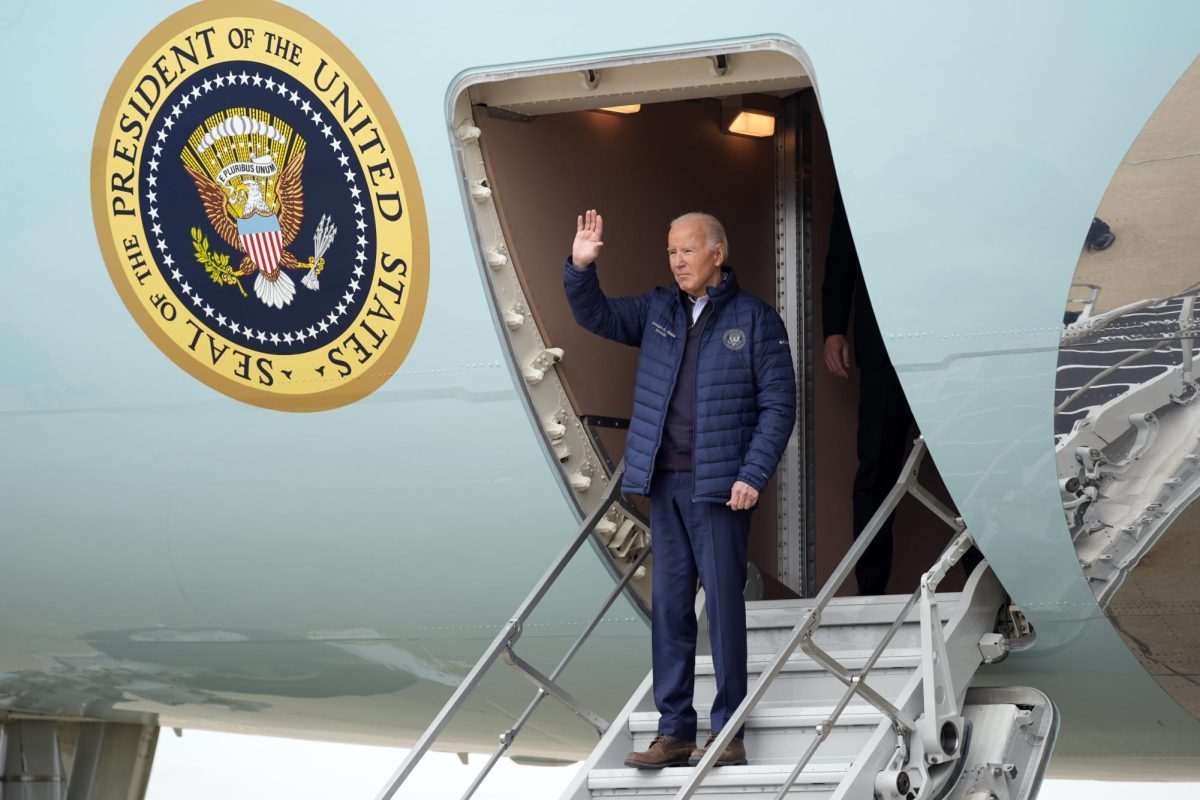In a phone call on the night of Feb. 11, according to NBC News, United States President Joe Biden advised Prime Minister of Israel Benjamin Netanyahu against a ground assault on Rafah, a densely-populated city in southern Gaza. A few hours later, Netanyahu defied United States interests and went ahead with the operation, launching a series of attacks.
As political assassinations and strikes on ships engulf the Middle East, Biden struggles to thread the needle between intervention and escalation. President of a global superpower, Biden has economic and military leverage. Therefore, he has a gamut of levers at his disposal, from soft power to hard power. Following this logic, Biden should have the capacity to influence Netanyahu’s decisions and the military might to deter hostile states. However, while Biden has boundless power, no tactic to alleviate the war or suffering is working yet.
Hamas militants launched a surprise attack on Israel on Oct. 7, killing 1,200 people and taking 250 hostages. In response, Israel imposed a blockade on the Gaza Strip and started a massive bombing campaign.
Since then, the Biden Administration has seemingly unequivocally supported Israel. Although Biden stands by Israel, he wants to encourage a moderate approach. Biden demonstrated the politics and soft power of body language on Oct. 17, when he visited Israel and gave Netanyahu a literal hug, along with a gentle warning, according to The New York Times.
“Biden has followed what has been called a ‘bear hug’ strategy of holding tight to Netanyahu as a way to contain and channel Israel’s response,” according to The Nation.
If the bear hug was a call for restraint, backed by U.S. prestige and influence, it failed. Israel’s war effort, experts say, sits among the deadliest and most destructive in recent history, according to AP News. What went wrong? It appears the foreign policy tool of a bear hug was not effective. While members of the Biden administration propose more coercive measures, such as delaying U.S. weapons sales to Israel for leverage, Biden has not made significant policy changes.
While Biden wields soft power to try to tame Israel’s response, he turns to hard power to prevent a widespread regional war. Biden sent American strike aircrafts into the Middle East as a show of force to keep adversaries at bay. America’s military might, however, did not deter the aggressive intentions of hostile states.
I believe Iran poses the greatest threat because it can get involved indirectly by activating its proxies. With Iranian-backed Hezbollah in Lebanon and Iranian-backed Houthis in Yemen, Israel faces the threat of a two-front war.
Netanyahu’s overly ambitious war objective does not help matters. Determined to achieve the total destruction of Hamas, Netanyahu’s war aim goes beyond the borders of Gaza. Israel killed a leader of Hamas on Jan. 2 in Beirut, Lebanon. Hezbollah vowed retaliation, saying it has “its finger on the trigger,” according to the Middle East Eye. While experts believe Hezbollah’s leaders do not want to engage in a wider war, per The New York Times, the cross-border attacks could lead to a miscalculation or an accident.
The violence extends from Lebanon to Yemen. For months, the Houthis have launched attacks at commercial ships in the Red Sea. In response, Biden issued an ultimatum, warning the Houthis to stop or face potential military action. The ultimatum, however, did not deter the rebels. The Houthis vowed to continue firing at ships until Israel ends the war in Gaza. Impacting global trade, their attacks have re-routed ships, delaying supply chains and increasing transport costs, according to AP News. Biden then launched air strikes against dozens of Houthi targets, escalating the conflict, and there is no end in sight.
According to The New York Times, the Houthis have been waiting for a moment to enter a war with Israel, their greatest enemy. Their attacks on ships have only galvanized domestic support in Yemen and earned them international recognition. The Houthis have no intention of stopping.
I believe Biden’s main problem is resolve. As the presidential election looms, Biden plays a wishy-washy game. He firmly supports Israel, but expresses frustration with Netanyahu, according to NBC News. He wants to contain the Israel-Hamas war, but sends more weapons to Israel. He is against U.S. military intervention in the conflict, but employs military force against determined empowered rebels.
Biden’s decisions rest on the notion of U.S. dominance; from a position of hegemonic power, he can set the rules. In reality, Netanyahu blatantly ignores Biden’s suggestions, and the Houthis revel in Biden’s warnings. With the death of 28,000 Palestinians and the massive disruption to global trade, it seems neither hard nor soft-power politics have worked. The tinder box in the Middle East poses the question: How much diplomatic and military influence does the U.S. really have?














